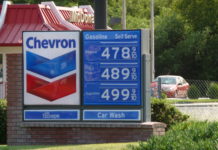SPONSORED CONTENT
When an accident occurs, understanding the scope of insurance coverage becomes crucial. One common query is whether insurance covers the cost of towing. In many cases, insurance policies do cover towing expenses following an accident, provided certain conditions are met, such as having roadside assistance or towing and labor coverage. However, the specifics can vary depending on the individual’s policy details.
Insurance policies often present a range of options, and towing coverage might be included as part of a comprehensive package or additional membership services. It’s essential for policyholders to review their insurance documents or consult with their insurer to confirm their exact benefits. This ensures they are not caught off guard during an already stressful situation.
Despite the potential for coverage, there are limits and exclusions to be aware of. Some policies may cap the reimbursement amount or require the use of specific towing companies. Knowing these details ahead of time can prevent unexpected costs and provide peace of mind during a challenging moment.

Understanding Auto Insurance Policy Coverage
Auto insurance policies offer different types of coverage, each designed to protect drivers from specific incidents. These policies are key to understanding when towing after an accident might be covered.
Collision Coverage Explained
Collision coverage is crucial in an auto insurance policy. It covers the cost of repairing or replacing a vehicle if it is damaged in a collision with another car or object. This type of insurance activates when the accident is caused by driving into another car, hitting a stationary object, or rolling the vehicle.
Towing after a collision is often covered if specified in the policy. It’s important to review the policy details, as coverage can vary. Not all policies automatically include towing as part of collision coverage, and some insurers may offer it as an optional add-on.
Comprehensive Coverage Insights
Comprehensive coverage handles damages to a vehicle not caused by collisions. Events like theft, vandalism, natural disasters, or encounters with animals are typically covered. This coverage can be essential for protecting against unexpected and unavoidable damages.
Like collision coverage, whether towing is included after such incidents depends on the policy specifics. Some policies bundle towing as part of comprehensive coverage, while others may require separate roadside assistance coverage. Checking the policy document or discussing it with an insurance provider can clarify what is included. Understanding these details helps in making informed decisions about policy adjustments, ensuring necessary protections are in place.
Towing After an Accident
When involved in an accident, understanding whether towing services are covered by your insurance can save significant trouble and expense. Various factors determine whether a towing service is included under your insurance policy.
Criteria for Coverage
Insurance policies may include towing coverage under specific conditions. Typically, if you have comprehensive or collision coverage, towing might be covered. It’s crucial to check your policy details or speak with your agent. Policies often have limits on the amount reimbursed for towing.
Some policies offer roadside assistance. This service usually covers towing costs, but only under particular conditions, like needing a tow due to an accident. Always confirm what your policy includes to avoid unexpected costs.
Insurance Claim Process for Towing
Filing an insurance claim for towing after an accident involves several steps. First, gather all necessary documentation, including the accident report and towing bill. Contact your insurance company as soon as possible to inform them about the accident and towing needs.
The insurer will provide specific instructions on submitting your claim. Make sure to keep records of all communications and any receipts. Claims processing time can vary, so follow up regularly to check on the status of your claim. It’s helpful to know the insurer’s policies on towing claims to ensure a smooth process.
Role of a Personal Injury Lawyer in Accident Claims
A personal injury lawyer plays a critical role in managing accident claims. They guide claimants through legal complexities and ensure rights are protected. Understanding the intricacies of accident claims can be challenging without professional help.
Communication with Insurance Companies: Personal injury lawyers communicate directly with insurance companies. They handle negotiations for compensation related to vehicle damages, medical expenses, and lost wages.
Legal Advice: Lawyers offer expert advice on accident claims. They evaluate the situation and explain the possible outcomes to their clients. This ensures informed decision-making throughout the process.
Documentation and Evidence: Gathering evidence is crucial in accident claims. Lawyers organize necessary documents like police reports, medical records, and witness statements.
Negotiation Skills: A lawyer’s negotiation skills can significantly impact settlement offers. They advocate for fair compensation that reflects the true extent of injuries and damages.
Court Representation: If settlements fail, a personal injury lawyer is prepared to represent the client in court. They build strong cases aimed at achieving favorable outcomes.
Accident claims often involve complex legal processes. Having a lawyer can make navigating these easier, ensuring rights are fully upheld.
When Insurance Does Not Cover Towing
Insurance policies may not always cover towing costs after an accident. This depends on specific policy details such as exclusions, limitations, and the process for resolving disputes or filing appeals.
Common Exclusions and Limitations
Insurance policies often include exclusions that specify situations where towing is not covered. Exclusions may apply if the towing is not directly related to an accident or if the driver was engaged in illegal activities at the time of the incident.
Additionally, there could be limitations on the distance a vehicle can be towed under coverage. Sometimes, tow coverage might only apply to specific types of vehicles or exclude certain zones. Some policies might require pre-approval for towing services or only reimburse specific amounts, leaving any additional costs to the insured.
Understanding these limitations ensures policyholders are aware of their financial responsibilities if they’re in a situation outside the coverage terms. Reading the policy details carefully helps identify what is and isn’t covered.
Dispute Resolution and Appeals
When towing coverage is denied, there are options for disputing the decision. Instances of disagreement typically require initiating a dispute resolution process. This could involve submitting additional documentation to prove coverage eligibility or providing evidence that contradicts the insurer’s decision.
Policyholders might also consider filing an appeal if they believe their claim was wrongly denied. Each insurance provider typically has its own procedure for these processes, including deadlines and required forms. Successful appeals usually depend on clear evidence and adherence to procedural guidelines.
Being familiar with the appeals process can assist policyholders in effectively challenging any denial of towing coverage.
Preventive Measures and Best Practices
Taking preventive measures regarding insurance can help individuals ensure that towing costs are covered after an accident. Key practices include regularly reviewing insurance policies and selecting appropriate coverage levels.
Reviewing Insurance Policies Regularly
Regularly examining insurance policies allows individuals to stay informed about their coverage. Key areas to review include towing coverage limits, deductibles, and exclusions. This practice helps in identifying gaps in coverage that might result in unexpected out-of-pocket expenses during an accident.
By evaluating their situation periodically, policyholders can make necessary adjustments, such as increasing coverage or adding riders. This proactive approach ensures they maintain suitable protection tailored to their needs. Insurers often update terms or introduce new offerings, making it crucial for policyholders to keep abreast of these changes.
Choosing the Right Coverage
Selecting the right coverage ensures comprehensive protection, including towing services. Individuals should assess their driving habits, vehicle type, and geographic location when deciding on coverage levels. Customizing policies to include towing assistance and rental car coverage can significantly reduce hassle and expenses following an accident.
It’s advisable to compare offerings from different insurance companies, considering premiums, coverage options, and customer service ratings. Important factors include the extent of towing services covered and any associated conditions. Selecting a policy with ample coverage can mitigate risks and provide peace of mind in the event of an accident.
The Importance of What You Do After a Car Accident
Handling the aftermath of a car accident with care is crucial for safeguarding your financial future. Accidents can lead to significant financial burdens, including medical expenses, vehicle repairs, and potential legal fees. Properly managing the situation can mitigate these costs and prevent long-term financial repercussions.
First, promptly reporting the accident to your insurance company is essential. This ensures that your claim is processed quickly, helping you receive the necessary funds for repairs and medical bills. Delaying this step can result in claim denials or reduced compensation, exacerbating financial strain.
Secondly, seeking immediate medical attention is vital, even if injuries seem minor. Some injuries may not manifest symptoms immediately, and delaying treatment can lead to more severe health issues and higher medical costs. Proper documentation of medical evaluations also strengthens your insurance claim and any potential legal cases.
Additionally, gathering and preserving evidence from the accident scene, such as photographs and witness statements, can be invaluable. This information supports your case in insurance claims and legal proceedings, ensuring you receive fair compensation.
Finally, considering legal counsel can be beneficial, especially in complex cases. An attorney can help navigate the legal landscape, protect your rights, and ensure you receive appropriate compensation.
By taking these steps, you can effectively manage the aftermath of a car accident, minimizing financial disruption and securing a stable financial future.
























